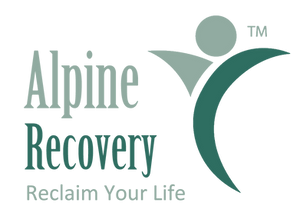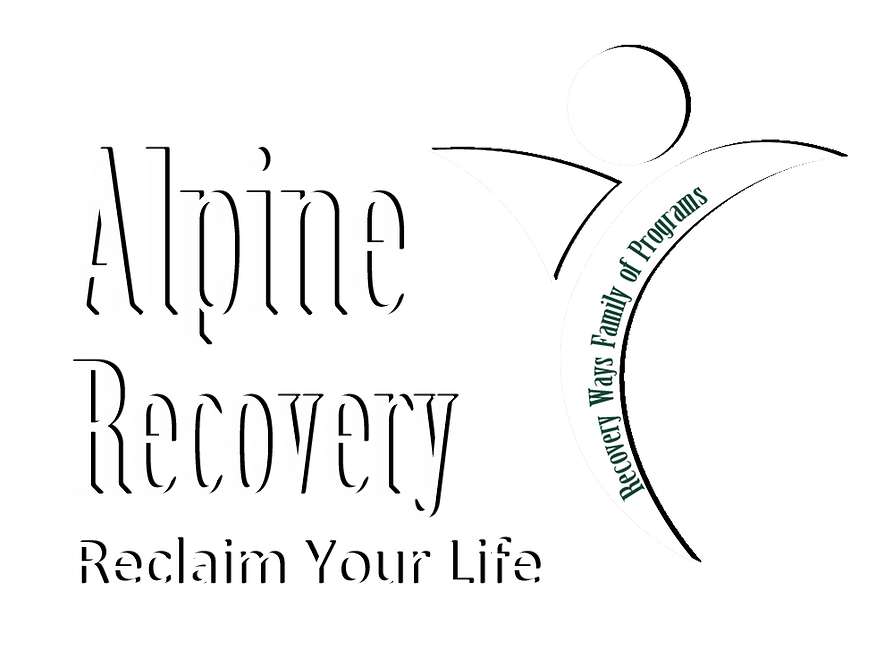Drug Rehabs in Stanwood WA
Taking the step to seek help for addiction is a life-changing decision. Facing addiction can be overwhelming for those struggling, as well as their families, but comprehensive rehabilitation offers the hope and tools needed to create lasting recovery. Drug Rehabs in Stanwood WA with their serene Pacific Northwest location and tight-knit community, plays an active role in fostering recovery journeys. From its scenic environment to its focus on healing, Stanwood offers an encouraging space for individuals seeking transformation. This guide will give you a clearer understanding of the rehabilitation services available in Stanwood, what to expect during the recovery process, and how to begin your path toward sobriety.
Exploring Drug Rehabs in Stanwood WA
Drug rehabs in Stanwood WA are each tailored to meet the unique needs of individuals on their recovery journey. These programs offer various approaches, from inpatient and outpatient care to evidence-based treatments, ensuring there is something that aligns with different lifestyles and circumstances. Understanding the available options, including the level of care, types of therapy, and support services provided, is crucial to finding the program that best fits your specific requirements and goals for lasting recovery.
Understanding Program Types
1. Outpatient vs. Inpatient Programs
- Outpatient programs provide patients with the flexibility to continue living at home while attending treatment sessions on a part-time basis. These programs are designed for individuals who need ongoing support but cannot commit to a full-time treatment schedule. They are particularly beneficial for those with work, school, or family responsibilities, allowing them to receive professional care while maintaining their daily routines. Outpatient programs often include therapy sessions, counseling, and support groups, tailored to meet the specific needs of each patient.
- Inpatient or residential programs provide 24/7 care in a highly structured and supportive environment. These programs typically include a variety of therapeutic approaches such as individual counseling and group therapy, and round-the-clock supervision by trained professionals. Inpatient care is especially recommended for individuals struggling with severe addictions, co-occurring mental health conditions, or those living in unsafe or triggering home environments. The goal is to remove individuals from external stressors while offering a safe space for healing and recovery.
2. Specialty Programs
Stanwood offers care for specific populations, such as:
Veterans: facing substance use disorders and mental health challenges, often stemming from the stresses of military service and the transition to civilian life.
Women-centered treatments: focusing on unique challenges such as navigating motherhood, overcoming trauma, managing family dynamics, and building resilience in a supportive environment.
Youth-oriented programs: designed to provide early intervention and tailored therapy approaches that address the unique developmental needs of children, teens, and young adults. These programs focus on building resilience, improving mental health, and fostering positive growth during critical life stages.
3. Assessment
An initial assessment is a crucial first step for anyone seeking rehab and addiction treatment. This process allows providers to gather a comprehensive understanding of the individual’s substance use patterns, including the type of substances used, frequency, and duration. It also includes a detailed review of medical history, any co-occurring mental health conditions, and personal or family history of addiction. Additionally, the assessment evaluates social, emotional, and environmental factors that may influence the individual’s path to recovery. By understanding these key areas, providers can create a tailored treatment plan that addresses the unique needs and challenges of the person, setting the foundation for a successful recovery journey.
Choosing the Right Rehab for You or Your Loved One
The key to a successful recovery lies in choosing a program tailored to individual circumstances, ensuring it addresses specific needs, challenges, and personal goals. Everyone’s journey to recovery is unique, and a one-size-fits-all approach often falls short of delivering lasting results. A personalized program considers factors such as mental health, physical health, lifestyle, and support systems, creating a comprehensive plan that resonates with the individual. This tailored approach not only increases the chances of long-term success but also empowers individuals by focusing on what works best for them, building confidence and resilience throughout the recovery process.
Factors to Consider
- Geographic Location: If privacy is a priority, Stanwood’s serene and secluded setting offers an ideal environment for a discreet and focused recovery experience, away from distractions and the hustle of everyday life. On the other hand, individuals who value family involvement in their treatment journey may prefer facilities located closer to home, making it easier for loved ones to participate in therapy sessions, visit regularly, and provide essential support throughout the recovery process.
- Type of Substance and Severity of Addiction: Whether it’s opioids, alcohol, or other substances, different rehab centers specialize in treating specific types of addictions. Some facilities may focus on severe, long-term substance abuse, while others are better equipped to handle milder or early-stage cases. It’s important to choose a facility with expertise that aligns with the individual’s specific needs and the substance they are struggling with to ensure the best chance of recovery.
- Preferences for Treatment Style: Some individuals may prefer group-oriented approaches like the 12-step program, which emphasizes peer support and shared experiences to foster recovery. Others might gravitate toward one-on-one therapy, appreciating the personalized attention and tailored strategies it offers.
Personalized Treatment Matters
Seek out centers that offer individualized treatment plans designed to address the unique needs of each person. Addiction, mental health history, and life circumstances differ greatly from one individual to another, and effective care should reflect these differences. Personalized treatment ensures recovery goals are met in a way that aligns with each person’s specific challenges and opportunities. Facilities like Alpine Recovery excel at crafting tailored care plans that not only prioritize recovery but also consider key factors such as family dynamics, work-life balance, and personal lifestyle preferences. This approach can significantly enhance the chances of achieving lasting success and overall well-being.
Support Systems Shape Long-Term Success
The involvement of family and the local recovery community often plays a decisive role in successful rehabilitation. Many centers in Stanwood recognize the importance of a strong support system and actively welcome significant others or close friends into the recovery process. Through family therapy sessions, loved ones are encouraged to participate in the healing journey, gaining a better understanding of addiction and learning effective ways to support their family member. This collaborative approach not only strengthens relationships but also fosters a sense of accountability and shared progress, creating a more solid foundation for lasting recovery.

Relapse Prevention
Relapse prevention programs empower individuals to stay ahead of potential setbacks by identifying and addressing early warning signs. These signs—such as mood changes, withdrawal from support systems, or risky behaviors—signal the need for immediate action. Proactively recognizing and managing these triggers is key to long-term success. Core benefits of relapse prevention:
- Early Intervention: Identify warning signals early on and address them proactively to prevent potential issues from escalating into bigger challenges.
- Proven Strategies: Learn and apply effective coping mechanisms designed to help you identify, understand, and manage triggers and cravings with confidence, allowing you to stay in control and build healthier habits over time.
- Strong Support Systems: Build reliable networks of family, friends, or peer groups who can provide encouragement and accountability. Participate in continuing care programs, such as support groups or counseling, to stay connected and reinforce long-term success.
These programs are designed with one goal: to help individuals maintain control, overcome challenges, and achieve lasting recovery. With the right tools and support, relapse prevention transforms obstacles into opportunities, laying the foundation for a healthier, more stable future.
Counseling and Therapy
- Individual Therapy: Personalized one-on-one sessions are designed to help individuals uncover the root causes of their addiction, addressing underlying emotional, psychological, or behavioral issues. These sessions provide a safe and confidential space to explore personal struggles and develop effective coping mechanisms for managing triggers. Cognitive-behavioral therapy (CBT), a widely used evidence-based approach, is often employed to help individuals identify negative thought patterns, reframe their thinking, and build healthier habits for long-term recovery.
- Group Therapy: Sharing experiences with peers fosters emotional support, connection, and a sense of community. It provides a safe space where individuals can relate to others facing similar challenges, learn from shared stories, and develop coping strategies together.
- Family Therapy: Loved ones are invited to participate in the recovery process, providing an opportunity to address and mend relationships that may have been strained or damaged by addiction. This collaborative approach fosters open communication, builds trust, and helps create a strong, supportive environment that can extend well beyond the treatment period, ensuring long-term success for everyone involved.
Life Skills Training and Aftercare
Rehabilitation doesn’t end within the walls of a treatment center. Skills such as stress management, budgeting, and job readiness are taught to ensure individuals are equipped for a smooth transition into a sober lifestyle. Centers also provide aftercare plans, including continued therapy and regular check-ins.
Real Stories of Recovery in Stanwood
Stanwood residents have embraced rehab as a step toward rebuilt lives. Here are stories of transformation from individuals in the community.
John, Stanwood Resident: “After losing everything to addiction over 22 years, the guidance from counselors here taught me how to stand on my own feet again. Today, I’m over a year clean, regaining my life and my relationships.”
Jessie, Former Patient: “Alpine Recovery helped me laugh, heal, and rediscover life after years of addiction. Their approach wasn’t just about treatment; it was about giving me hope and the right tools. Today, I’m living clean and happy.”
These powerful examples highlight the life-changing potential of a supportive and professional rehabilitation program.
Addressing Financials for Rehab in Stanwood
Cost is a common concern for individuals considering rehab, but Stanwood facilities work to make recovery accessible for everyone. We offer a variety of programs and payment options to ensure that financial worries don’t stand in the way of getting the help you need. Our goal is to support you on your journey to recovery without unnecessary stress.
Understanding Insurance Coverage
Verify whether your insurance policy covers rehab services to make the treatment process stress-free and financially manageable. Many rehabilitation centers, including those near Stanwood, partner with major insurance providers, offering in-network options that help reduce out-of-pocket costs. These partnerships ensure seamless coverage for various treatment plans, giving you peace of mind while focusing on recovery. Providers frequently accepted include Aetna, UnitedHealthcare, and Kaiser Permanente, among others. However, each center may vary in the specifics of insurance acceptance, so it’s crucial to contact them directly to confirm coverage details and explore any additional financial assistance options they might offer. Taking this step can help you better plan and prioritize treatment for yourself or your loved one.
Financial Assistance Options
For those without insurance, Stanwood facilities often offer financial aid options or sliding scale payment plans, which adjust costs based on your income level to make care more accessible. These plans are designed to ensure that everyone, regardless of financial circumstances, can receive the support they need. Additionally, scholarships or grants may be available for individuals who qualify, further alleviating the financial burden and providing opportunities for affordable care. Staff members are typically available to assist with applications and guide you through the process to find the best option for your situation.
Conclusion
Recovery is not an easy road, but it is one worth traveling. By seeking professional drug rehabs in Stanwood WA, you or your loved one can rediscover hope, mend relationships, and build a fulfilling, addiction-free future. If you’re ready to take the first step, don’t hesitate and reach out to our expert staff today by calling 1 (360) 658-1388 or click Alpine Recovery. Whether you’re exploring inpatient or outpatient care, the right rehab provides the structure and support needed for lasting transformation. Remember, recovery begins with action. Speak to a counselor, verify insurance options, or book an assessment today. There’s no better time than now to reclaim your life.



